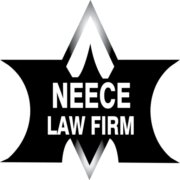Best Real Estate Lawyers in North Carolina
Share your needs with us, get contacted by law firms.
Free. Takes 2 min.
Free Guide to Hiring a Real Estate Lawyer
Or refine your search by selecting a city:
List of the best lawyers in North Carolina, United States
United States Real Estate Legal Questions answered by Lawyers
Browse our 2 legal questions about Real Estate in United States and read the lawyer answers, or ask your own questions for free.
- What is owner of condo units obligation as far as damage to the condo below their unit.
- The unit above my condo is managed by a Property Management company, and it was rented. During the time it was rented, there were water leaks that damaged my ceilings, and the Management Company. refuses to fix the ceiling so that it matches the rest of the ceiling. Even though... Read more →
-
Lawyer answer by Horus Legal Sulotion
Thank you for sharing the details of your situation. Based on the circumstances you described, you may have grounds to escalate the matter legally. You can file a case to request the appointment of a government engineer from Dubai Municipality...
Read full answer - What's the fee for reviewing a Home purchase contract.
- How much is your fee for looking over a contract on the house I am about to purchase.
-
Lawyer answer by US Legal Group 美国法律集团律师事务所
Hi. Thank you for reaching out to us regarding your upcoming property purchase. As a combined China & U.S. law firm, we specialize in real estate transactions and are well-equipped to review your contract.To provide you with a precise quote,...
Read full answer
United States Real Estate Legal Articles
Browse our 4 legal articles about Real Estate in United States written by expert lawyers.
- NY Lease Audits 2026: Mixed-Use Liabilities
- Commercial real estate in the United States is governed mainly by state law, but federal rules on discrimination, financing, and taxation still shape how you invest, lease, and manage property. For mixed-use buildings in New York City, new "Good Cause Eviction" style protections for certain residential tenants can cap rent... Read more →
- NYC Local Law 97 Fines: Defend Owners 2026
- Starting in 2026, New York City will begin collecting Local Law 97 emissions fines for buildings that exceeded their 2024 limits, at $268 per metric ton of CO2-equivalent over the cap. Owners can significantly reduce or defer penalties by documenting "Good Faith Efforts," including signed retrofit contracts, permits, financing commitments,... Read more →
- Squatters Rights in Texas 2026:How New Laws Expedite Removal
- Real estate law in the United States is mostly state based, but key federal laws like the Fair Housing Act and RESPA still shape every sale, lease, and loan. Title, deeds, and recording with the county clerk or recorder are what legally prove who owns a property and who has... Read more →
About Real Estate Law in North Carolina, United States
Real estate law in North Carolina covers all legal aspects related to the purchase, sale, leasing, and use of land and buildings within the state. This area of law addresses residential and commercial transactions, property disputes, zoning regulations, landlord-tenant relationships, and property development. North Carolina has its own unique statutes and customary practices regarding how real estate transactions are conducted, making it essential for buyers, sellers, and owners to understand the local legal landscape.
Why You May Need a Lawyer
A real estate lawyer can help you navigate the complexities of property transactions and protect your legal interests. Here are some common scenarios where legal assistance is valuable:
- Reviewing or preparing purchase and sale agreements - Resolving title issues and conducting title searches - Handling closings and ensuring all documents are executed properly - Dealing with boundary disputes or encroachments - Addressing foreclosure and short sale matters - Negotiating leases and handling landlord-tenant disputes - Guiding you through zoning laws and land use regulations - Assisting with property tax issues and appeals - Handling disputes among co-owners or with homeowners associations - Navigating the legal aspects of transferring inherited property
Local Laws Overview
North Carolina real estate law has several distinctive features that are important for anyone involved in property transactions:
- North Carolina is a “pure race” state when it comes to recording property interests. This means the first party to record a deed wins priority, regardless of the transaction date. - Most residential real estate closings are required by custom to be overseen by a licensed North Carolina attorney. Only attorneys can conduct the final closing process. - The state uses General Warranty Deeds and Special Warranty Deeds, each offering different levels of protection to buyers. - North Carolina’s Offer to Purchase and Contract form is standardized and widely used. It outlines contingencies, due diligence periods, and earnest money requirements. - The Residential Property Disclosure Act requires sellers to disclose known material facts about a property, although a buyer may agree to purchase “as is.” - Foreclosures in North Carolina usually follow a power-of-sale process, which moves relatively quickly compared to judicial foreclosures. - Local zoning and land use ordinances vary by city and county, so checking with local planning departments is essential. - The state’s landlord-tenant laws govern security deposits, eviction procedures, and proper notice for lease termination. - Real estate transactions may be subject to excise tax and local county recording fees. - Homeowners associations (HOAs) are governed by state statutes, covenants, and declarations that affect community living arrangements.
Frequently Asked Questions
What are the main steps in buying a home in North Carolina?
Buying a home typically involves securing financing, making an offer, entering into a contract, conducting inspections, performing a title search, and attending a closing where ownership is transferred.
Is a real estate attorney required for a home closing in North Carolina?
Yes, in North Carolina, only a licensed attorney can conduct the closing and disburse funds as part of the residential real estate transaction.
What is the due diligence period?
The due diligence period, negotiated in the purchase contract, is a timeframe where the buyer investigates the property and can back out with minimal penalty, typically forfeiting a due diligence fee.
What are seller disclosure requirements?
Sellers must provide a disclosure statement outlining known problems or defects with the property, such as structural issues, flooding history, or pending liens, or else declare the property is sold “as is.”
How are property boundaries determined?
Boundary lines are established through surveys, recorded deeds, and plats. Any uncertainties should be resolved before closing, often with the help of a licensed surveyor.
What is title insurance and do I need it?
Title insurance protects buyers against future claims or disputes about ownership of the property due to errors or undiscovered issues. Most lenders require it, and buyers are advised to obtain an owner’s policy.
How does foreclosure work in North Carolina?
Most foreclosures are “power of sale,” meaning the mortgage lender can sell the property without court approval following specified notice and hearing procedures. Some foreclosures may still proceed through court.
What can I do if I have a dispute with my homeowners association?
Start by reviewing your HOA’s covenants, bylaws, and rules. If informal resolution fails, legal counsel may be necessary to determine your rights and possible next steps.
Can a landlord evict a tenant without going to court?
No, in North Carolina, landlords must follow the legal eviction process, which includes providing proper notice and obtaining a court order before removing a tenant.
How are real estate agents regulated in North Carolina?
Real estate agents and brokers are licensed and regulated by the North Carolina Real Estate Commission, which sets rules of conduct and handles complaints about agents.
Additional Resources
For more information and assistance regarding real estate in North Carolina, consider these helpful resources:
- North Carolina Real Estate Commission - North Carolina State Bar - Real Property Section - North Carolina Secretary of State - Land Records Management - Local county Register of Deeds offices - North Carolina Association of Realtors - North Carolina Housing Finance Agency - Legal Aid of North Carolina (for eligible individuals) - Local planning and zoning departments - Homeowners association governing documents - North Carolina Attorney General’s Office - Consumer Protection Division
Next Steps
If you need legal assistance with a real estate matter in North Carolina, start by gathering all relevant documents such as contracts, deeds, correspondence, and inspection reports. Identify the specific issue or transaction you require help with. Research qualified real estate attorneys in your area and schedule a consultation. Bring your documents and be ready to describe your situation in detail. Your attorney can then advise you on your rights, the applicable laws, and the best course of action to protect your interests during your property transaction or dispute.
Remember that real estate laws and practices can change. Always verify information with current legal professionals or the appropriate state and local agencies.
Lawzana helps you find the best lawyers and law firms in North Carolina through a curated and pre-screened list of qualified legal professionals. Our platform offers rankings and detailed profiles of attorneys and law firms, allowing you to compare based on practice areas, including Real Estate, experience, and client feedback.
Each profile includes a description of the firm's areas of practice, client reviews, team members and partners, year of establishment, spoken languages, office locations, contact information, social media presence, and any published articles or resources. Most firms on our platform speak English and are experienced in both local and international legal matters.
Get a quote from top-rated law firms in North Carolina, United States — quickly, securely, and without unnecessary hassle.
Disclaimer:
The information provided on this page is for general informational purposes only and does not constitute legal advice. While we strive to ensure the accuracy and relevance of the content, legal information may change over time, and interpretations of the law can vary. You should always consult with a qualified legal professional for advice specific to your situation.
We disclaim all liability for actions taken or not taken based on the content of this page. If you believe any information is incorrect or outdated, please contact us, and we will review and update it where appropriate.
Browse real estate law firms by service in North Carolina, United States
North Carolina, United States Attorneys in related practice areas.
Browse real estate law firms by city in North Carolina
Refine your search by selecting a city.













